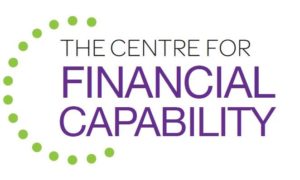 The Centre for Financial Capability is a financial education charity which brings together key stakeholder across the primary financial education space, to achieve shared aims and effect change to ensure all children receive a high-quality and effective financial education starting at primary-school level. The Centre’s intention is to be at the centre of the financial education space, with the aim of improving access and quality of financial education, bringing organisations together and campaigning for greater investment and attention in this important area.
The Centre for Financial Capability is a financial education charity which brings together key stakeholder across the primary financial education space, to achieve shared aims and effect change to ensure all children receive a high-quality and effective financial education starting at primary-school level. The Centre’s intention is to be at the centre of the financial education space, with the aim of improving access and quality of financial education, bringing organisations together and campaigning for greater investment and attention in this important area.
Providing financial education
We have continued to fund MyBnk’s sessions which deliver expert-led financial education to young people with the goal of improving their financial capability.
The Centre has been delighted to have MPs, such as Peter Dowd MP and Caroline Nokes MP, visit these sessions to watch the children learn key financial skills, highlighting the benefits of financial education provision to young children. Most recently, Chancellor Rishi Sunak MP attended a Year 6 MyBnk session where he watched the pupils learn important financial concepts.
Government and wider engagement
The Centre has met with representatives from HMT, DCMS and DofE to discuss the benefits of expanding financial education to include primary aged children and the Dormant Assets Bill which will see an additional £880 million of unclaimed Dormant Assets released. The Centre looks forward to responding to the upcoming 12-week consultation to promote financial education being a recipient of the funds.
The Centre has been meeting with a wide range of stakeholders, including private sector organisations, charities and thinktanks, to discuss the importance of primary-school financial education. The Centre recently responded to the Centre for Social Justice’s call for evidence and recently met with them to discuss the importance of early intervention financial education.
Polling and research
In December, the Centre conducted polling research on the rise in use of Buy Now, Pay Later schemes, Christmas debt, and general anxiety around money over Christmas. The results showed that almost a quarter of UK adults who had used BNPL services had failed to pay on time, rising to 35 per cent for people aged between 18 and 34. This varies in region, for example over a third (37%) of Londoners who have used BNPL have been charged late payment fees, while the national average was 23%. These findings highlight the crucial need to give young people access to high quality financial education.
A key aim of the Centre is to build evidence of what works at primary-level financial education. We are currently developing the first financial education longitudinal study to explore links between financial education at primary level and future financial capability.
Parliamentary event
In April, we hosted the Financial Education Summit in collaboration with John Penrose MP in Parliament. The Summit was attended by parliamentarians, stakeholders in the financial education space and representatives from DCMS, HMT and DfE, and included a panel discussion focusing on the importance of financial education for young children, and how it links with social mobility and levelling up. It was chaired by Carol Knight, Trustee of the Centre, with a panel made up of John Penrose MP, Stewart Perry (Head of Responsible Business at Quilter and representative of the Centre), and John Craven (Chief Executive of upReach). After the event, representatives of the Centre and its member organisations delivered a letter to No.11, signed by attendees of the Summit, calling on DCMS to use some of the unclaimed money from the Dormant Assets Act to fund financial education.

To find out more about the Centre you can read about our work and our policy proposals, or visit our website.
Return to Forum Updates Homepage